- Home
- Sharyn McCrumb
The Hangman's Beautiful Daughter Page 2
The Hangman's Beautiful Daughter Read online
Page 2
and lived alone, which made it even more thoughtful to check on her between Sundays every now and then. In this part of the country, neighbors were well out of hollering distance, and hospitals were an hour away in any direction.
By the time Laura's car had crested the mountain, opening up all the spreading vast-ness of the Little Dove River two thousand feet below, she was worrying more about herself than about Nora. Would Nora expect her to lead a prayer or anything? Would the old woman sense what was troubling her? Should she even talk about it with a parishioner? She wished Will were here to advise her.
She stopped the car on the summit to think and to look out at the comforting wilderness. The Little Dove Valley was a tapestry of autumn browns and gold, with only the Underbills' pastureland and the pine trees on the hills to give it a touch of green.
Brownest of all was the river. Laura's gaze hardened as she stared out at the swath of dead, dun-colored water, oozing through the cut in the hills. She wondered if animals tried to drink there anymore. This is what comes of never questioning the government, she thought angrily. They won't give a damn about what happens to you. Will had read some of the newspaper articles about the environmental hazards of the river, and he thought that the community should hold a meeting about the Little Dove River. He had talked about petitions, and letters to the district's congressman,
but another cause had captured his attention before he could appeal to his flock for action. Now Will was facing action of a different sort, and the Little Dove rolled on as before, bringing its poison into the valley. Laura sighed, unhappy to be reminded that no wilderness is really very far from the taint of civilization.
She might have mentioned her pregnancy to the sheriff tonight when he asked for her help, but even as her mind framed the excuse, she sneered at her own cowardice. She wasn't even showing yet. She remembered an old Life magazine photo she'd seen as a child: Ethel Kennedy playing a vigorous set of tennis in her eighth month. Besides, agreeing to go was easier than explaining to this harried-sounding stranger at a death scene about something so personal as her unborn child. Even Will didn't know yet. Laura heard herself telling the sheriff to give her directions to the farm. She would be there as soon as she could.
She slowed the car as she came to the Ashe Mountain Road turnoff. A left turn and two miles of gradually steepening incline led to Nora Bonesteel's home in a mountain meadow. Laura peered up through the trees to see if she could discern any lights ablaze on the summit above, but all was dark. Should she come back in the morning and tell Nora Bonesteel of the night's events? Local legend claimed that she would know already.
As she drove on in the darkness, Laura thought back on her visit to Nora Bonesteel on
that clear autumn day. Even then, she thought, the old woman had seen death coming.
Nora Bonesteel lived in a two-story white house that dated back further than anybody could remember. It sat in a meadow on the top of Ashe Mountain, shaded by century-old oaks, with an apple orchard, a pond, and a view of all creation. The dirt road was cut into the mountain above Nora's land. To reach her house, you parked on the side of the road, near the ditch full of tiger lilies, and you walked down a lavender-lined path to her front door. The meadow itself seemed to hang on the side of the mountain, like a precariously balanced Christmas ornament. From that meadow, the world fell away to a woven pattern of dark green and beige, seamed by the ocher river, all stretching away to the slate-blue mountains on the horizon. In the summer it was a tapestry of greens, embroidered with laurel and redbud; now it was a sepia print of a landscape washed in autumn. On the oak-tangled mountain across the valley, the craggy face of the Hangman stared back.
When Laura Bruce's car pulled up beside the lone mailbox on Ashe Mountain Road, Nora Bonesteel was already standing on her front porch, waving for her visitor to come down. In the clear mountain silence you could hear the rumble of a car engine a quarter of a mile away. Even at her age, her lean body looked wiry rather than frail. She wore a plain gray dress with a homespun crimson shawl wrapped about
her shoulders to keep out the wind. She was a spare, hollow-cheeked woman, and although she was well past seventy, her hair was still dark, lightly peppered with gray. She kept it pulled back from her face and fastened with tortoise-shell combs in a bun at the nape of her neck. She waved to Laura and motioned for her to come into the house.
Laura Bruce was careful to wipe her feet twice on the rush mat outside before she ventured onto the age-darkened oak floor of Nora Bonesteel's front room. Because that front parlor faced up the mountain and was shaded by the porch, the room was always in shadow, despite a large front window. An old horsehair sofa and a dark braided rug were left in the room for form's sake, but no one ever sat there. It was only a space to pass through on your way to the back of the house—the part that faced the downward slope of the mountain, rooms of light and air that seemed to be built on clouds.
A few years back Nora had gotten a jackleg carpenter to take out most of the east wall of the back parlor and replace it with huge glass windows, so that the first thing you saw when you came into the room was the gentle slope of the back meadow, ending in woods, and beyond that, a thousand feet below, the sprawl of field and forest and the distant blue mountains of North Carolina on the horizon.
The room ran the length of the house. In one corner, surrounded by weeping figs and potted ferns, stood the frame of a handmade loom threaded with white strands for the day's weav-
ing. At the other end of the room, a flowered sofa and two shabby green wing chairs faced the stone fireplace. A cracked china pitcher, filled with mums and asters, the last of the fall flowers, stood on the carved oak mantel. From the kitchen came the smell of brewing coffee and faint strains of classical music from Nora Bonesteel's portable radio.
Laura Bruce walked to the window beside the loom and looked out at the valley and the haze of hills beyond it. "You can see a long way from up here," she said.
Nora Bonesteel set two pottery mugs of coffee on the white pine table in front of the sofa. "Yes," she said. "I can see a long way."
"The valley looks beautiful spread out below. I can't even see any houses. It hasn't changed since pioneer days."
Nora Bonesteel shook her head. "Lord, that isn't so. The old folks wouldn't know this land at all if they were to come back. It would about nigh break their hearts. Fifty years ago, every valley and mountaintop you see would have been covered with chestnut trees. In the spring they flowered white like snowcaps on the top of every mountain, and every autumn their leaves would turn those hills into a shower of gold. Place names like Yellow Knob and White Top hark back to the old days when these mountains were covered with chestnut trees. Those trees were our wealth. We lumbered the old ones for hardwood, and we fed the livestock on the wild chestnuts that fell in the pastures. And then one day they began to die."
"The chestnut blight," murmured Laura. She remembered a table she'd seen as a child at a great-aunt's farmhouse. It was a homemade kitchen table of black-swirled chestnut wood, and the old woman polished it every day. Laura remembered her saying that she prized the table because her husband had made it of chestnut wood and now both were dead and gone forever. "All the American chestnuts caught a disease. It was in the thirties, wasn't it?"
"That's when it reached here, I reckon," said Nora, staring out at the mountaintops taken over by pine and scrub oak. "Do you know where it came from?"
Laura shook her head. "I thought it just happened."
"The New York Botanical Garden imported a tree with the disease, and they allowed the fungus to escape. It traveled from tree to tree, and when it was done, it had killed every chestnut tree in America. Fifty years, and they still haven't found a cure. They keep trying, though." She pointed to two bare trees that were little more than twigs, encircled in stones a few feet down the slope.
"Are they chestnuts?" asked Laura.
"Three years old," said Nora proudly. "The blight doesn't kill them right of
f, you know. Some trees got to be seven, ten years old before it took them. This is a new strain I got mail order. We're hoping to raise up a blight-resistant chestnut. It's too soon to tell, though."
"Don't you know?" asked Laura. She reddened as soon as the words were out of her
mouth, because she felt that the Sight was something you didn't talk about to Nora Bonesteel. It was like noticing someone's handicap.
"I never get things that have much to do with me," Nora replied. "Sometimes I can't make out what they do mean until what they foretell goes and happens. Once when I was seven years old, I started crying in a neighbor's house, saying I smelled smoke. Well, they searched that house from rafter to root cellar, and never did find anything afire. But two days later, some cinders stuck in the chimney during the night, and burned that house to the ground. It didn't do anybody any good, my early warning. My best friend Nellie died in that fire."
Laura shivered. "What an awful thing for a seven-year-old! You must have felt terribly guilty."
Nora looked away. "Nellie told me I wasn't to blame. I'd see her now and again. Till I grew up. Course she never did."
Laura sat openmouthed, wondering what she could possibly reply to that. What would Will have said in such an odd conversation? Would he have denounced Nora's ghosts as a pagan superstition, or would he have humored a frail old woman? He might even have believed her. It was something they had never discussed. There was too much to say about everyday matters: housekeeping and social obligations; politics and financial affairs; church business and parish problems. There was no time to worry about those who were dead and gone.
"I hardly ever get anything I'd set a store on 32
knowing," Nora continued. "Take soap operas, now, for an instance. Do you watch them? That Brittany Devlin on the two o'clock one, I just can't figure out what in the world—"
Laura blinked at this unexpected turn in the conversation. Alas, she could not discuss soap operas, either. Gently she turned the conversation back to Nora herself.
"So you won't know if you're ever . . ." Laura hesitated. Talking of death to an old person seemed impolite, indelicate. "Going to become ill?" she finished lamely.
"Likely not. It doesn't interest me much, anyhow."
"Just as well that I came to see how you were," said Laura briskly, mistaking Nora Bonesteel's simple statement for self-pity. "Besides, to tell you the truth, I was a little lonely myself. I miss Will." She hoped that the old woman would say something—however insincere—like "He'll be back soon." She would have treasured such politeness as a prophecy, but Nora said nothing.
"How are you feeling?" asked Laura after another moment of silence.
"I'm tolerable in body but low in spirit," said Nora Bonesteel. "I dread the shortening of days in the autumn. It's more night than we need in this world."
Laura smiled. "Yes, but for about ten days the trees are the most beautiful shades of red and gold. There's nothing more beautiful than autumn."
"It isn't worth it," said Nora Bonesteel. 33
"When you're my age, you feel the cold all the way through you, and every year makes you less certain that you'll be around in the spring, when the world comes back to life. Pretty soon old Persey will leave me, too. I've seen her scratching around in the backyard there when the wind blew cold."
She pointed to a fat, white-muzzled groundhog curled up in a cat basket among the house-plants. Persey, who was clutching a half-eaten Stayman apple in her paws, watched the visitors with smoldering eyes, ready to run with her prize.
"Does she still hibernate?" asked Laura, staring back into the plump little face.
"Oh, yes. She has to. It's nature's way. She's with me all summer, eating me out of house and home, and then come late fall, she digs her hole out back, and tries on death until the spring comes. But Persey's old now, too, and I'm always afraid she won't be able to make it back from the grave."
Laura ignored the shiver that rippled down her spine. "Well, I'm sure you'll both be here in April," she said briskly. "Look, I've brought you some of our garden seeds so that we can swap stock." She held up the small paper bag.
Nora sat down in one of the wing chairs, and pulled a length of quilted cloth out of her sewing basket. "I'm glad for some company, Laura Bruce. I don't get about much these days. You don't mind my sewing while we talk, do you? I see better in daylight."
Laura took a sip of her coffee. "Please do. What are you making now?"
Nora Bonesteel looked down at the dark fabric in her lap, and her expression became somber. "It's an old-fashioned quilt, I reckon. I've been working on it for a few weeks now. Something has been troubling me lately. It devils me when I try to sleep, and when I'm awake, it hovers just on the edge of my thoughts, where I can't get a good look at it, but it's a dark shape. I can't quite put my finger on what it is. So I thought I'd start a quilt, and see if occupying my hands would ease my mind. I didn't think about any set pattern; just set to working to see could I find out anything by what I was called on to make. This is what I got."
She held the quilt up by the corners so that Laura could see its design. A three-inch border of black velvet framed the quilt, and against its green background she had embroidered a scene: a wavy swatch of blue fabric suggested a river, placed below rounded rows of dark blue and green satin mountains. The foreground of the picture contained a full-leafed oak tree towering over gray satin crosses and rounded gravestones, surrounded by an unfinished web of black stitchery resembling a wrought-iron fence.
"It's a cemetery," said Laura, staring at the textile landscape. "It's very well done, but . . . what are those things on the bottom hem?"
Along the bottom of the quilt, Nora Bonesteel had tacked six coffin-shaped pieces of black satin. "Caskets. I think they're meant to go in
the center of the quilt by and by," said Nora, speaking dispassionately, as if it were someone else's work.
"I've never seen a quilt with that design," said Laura. The design was executed in rich velvet and satin, and the stitchery was flawless, but she found herself reluctant to touch the fabric. "Did the making of it ease your mind?"
"No, but it centers the feeling. When I put that heavy material across my lap to sew on it, it gives me chills."
"What do you think it means?" asked Laura, staring at the white needlepoint crosses in the quilted scene.
"Death, of course," said Nora Bonesteel in the voice she might have used to tell you the name of a wildflower. "But it isn't coming sudden and accidentallike, the way a truck might smash into a car next week. This death got rolling a good while back. Just lately it's been picking up speed."
"Who?" asked Laura. Her thoughts, a litany of crazy old woman, crazy old woman, did not drown out her fears.
"I'll know when it hits them."
CHAPTER 2
I am a brother to dragons, and a companion to owls.
The red shine of two eyes above the road surface ahead warned Laura of the danger in time to brake and allow the doe to cross safely. Sitting motionless behind the steering wheel, she watched the deer, illuminated by the high beams, sidle across the blacktop in no apparent hurry. It was a small doe, probably a yearling, and unlikely to be traveling alone. The car must mask the human scent, Laura thought, still waiting for the deer to leave the pavement. At last, she blew the horn, causing the animal to disappear into the underbrush in one arching bound. The noise would warn the others to keep their distance until the car was safely past their crossing.
Laura seemed to be afraid of everything tonight. When she came to the narrow stretch of road that curved under the concrete railroad trestle, she sat there for several agonizing minutes, unwilling to proceed in the dark when she could not see around the bend. At last, she blew her horn and edged forward into the deserted country road. She did not speed up again until half a mile later, when she passed the shabby
frame church that was the snake handlers' domain. This sect of solemn fundamentalists took their beliefs from one verse in the si
xteenth chapter of Mark, in which Jesus describes the attributes of his followers: 'They shall take up serpents; and if they drink any deadly thing, it shall not hurt them; they shall lay hands on the sick, and they shall recover." The believers kept to themselves in the remotest hollers of the country. Laura had never met a snake handler; she had never heard anything said against them, but on this harrowing night the mere sight of their church chilled her. She fiddled with the radio, trying to find a lively all-night station to distract her, but on the one clear channel she found, the stentorian tones of the speaker told her within seconds that she was hearing a sermon. Impatiently, she switched it off, only then remembering Will, and the fact that she had thus far neglected to pray.
She was nearly there. The ruins of an old country store and gas station on the left side of the road were her signal to turn onto a gravel side road that wound down the hillsides between pastures and pine groves into the narrow valley cut by the Little Dove River. The old Til-den place, now owned by the Underhills, lay in rich bottomland a few hundred yards from the silent river. One more downward twist in the road and she would be in sight of the farmstead.
The house was ablaze with lights shining far into the darkness of the surrounding valley. On the road, a shelf of gravel a quarter of a mile
above the home place, Laura could see the white shapes of sheriff's department cars and the rescue-squad ambulance parked on the lawn in front of the Underhills' front porch. Even in the silence she could sense the hurry and confusion behind the glow of the house lights.
She edged her car off the gravel driveway, and parked it beside a spreading lilac bush, out of the way of the official vehicles. She reached for Will's big leather Bible on the passenger seat, but in the end she went in without it.

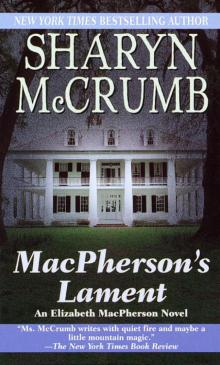 Elizabeth MacPherson 07 - MacPherson’s Lament
Elizabeth MacPherson 07 - MacPherson’s Lament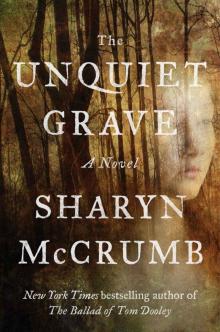 The Unquiet Grave: A Novel
The Unquiet Grave: A Novel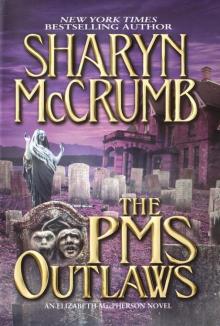 The PMS Outlaws: An Elizabeth MacPherson Novel
The PMS Outlaws: An Elizabeth MacPherson Novel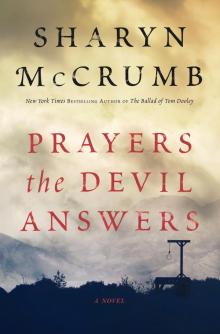 Prayers the Devil Answers
Prayers the Devil Answers Paying the Piper
Paying the Piper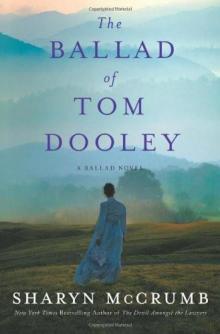 The Ballad of Tom Dooley: A Ballad Novel
The Ballad of Tom Dooley: A Ballad Novel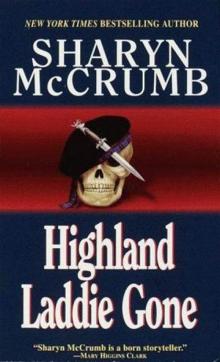 Highland Laddie Gone
Highland Laddie Gone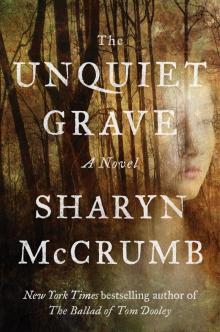 The Unquiet Grave
The Unquiet Grave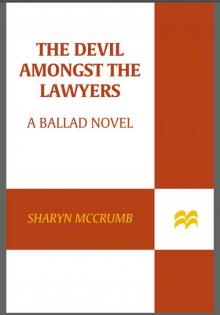 The Devil Amongst the Lawyers
The Devil Amongst the Lawyers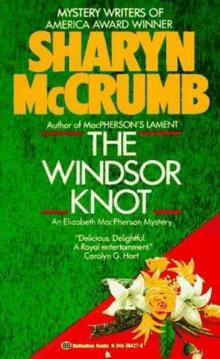 The Windsor Knot
The Windsor Knot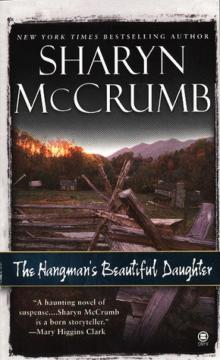 The Hangman's Beautiful Daughter
The Hangman's Beautiful Daughter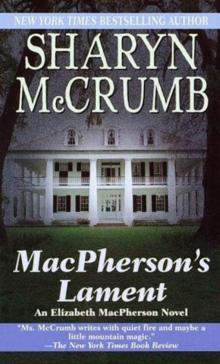 MacPherson's Lament
MacPherson's Lament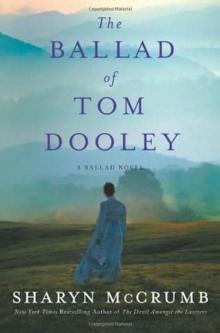 The Ballad of Tom Dooley
The Ballad of Tom Dooley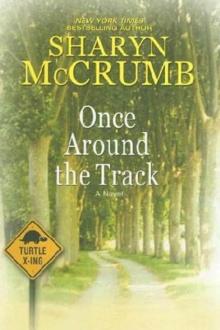 Once Around the Track
Once Around the Track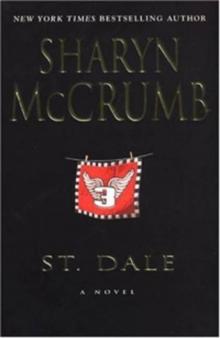 St. Dale
St. Dale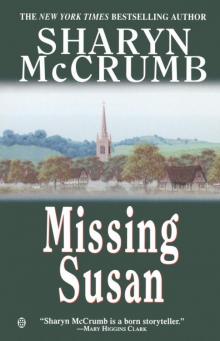 Elizabeth MacPherson 06 - Missing Susan
Elizabeth MacPherson 06 - Missing Susan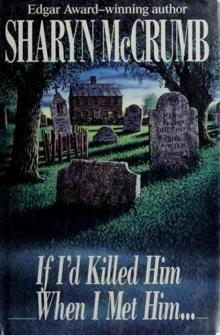 If I'd Killed Him When I Met Him…
If I'd Killed Him When I Met Him…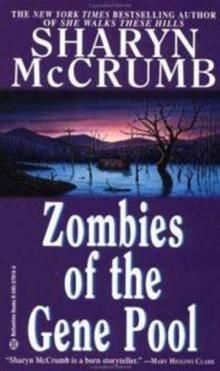 Zombies of the Gene Pool
Zombies of the Gene Pool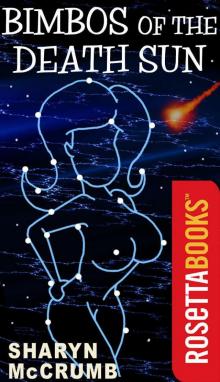 Bimbos of the Death Sun
Bimbos of the Death Sun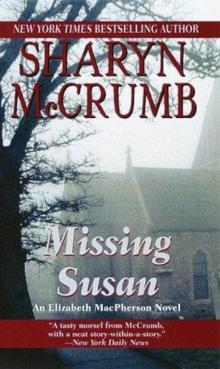 Missing Susan
Missing Susan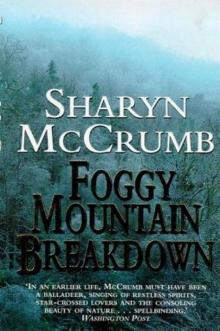 Foggy Mountain Breakdown and Other Stories
Foggy Mountain Breakdown and Other Stories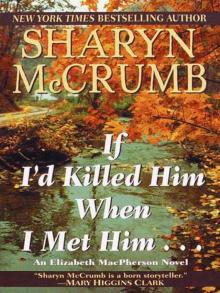 If I'd Killed Him When I Met Him
If I'd Killed Him When I Met Him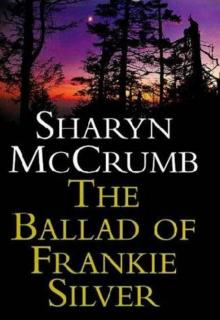 The Ballad of Frankie Silver
The Ballad of Frankie Silver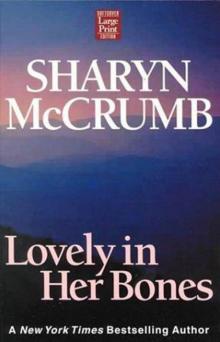 Lovely In Her Bones
Lovely In Her Bones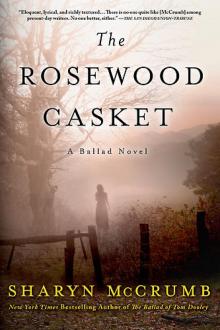 The Rosewood Casket
The Rosewood Casket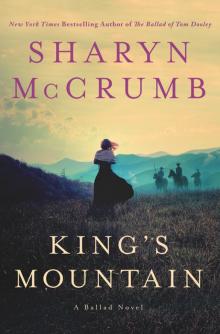 King's Mountain
King's Mountain